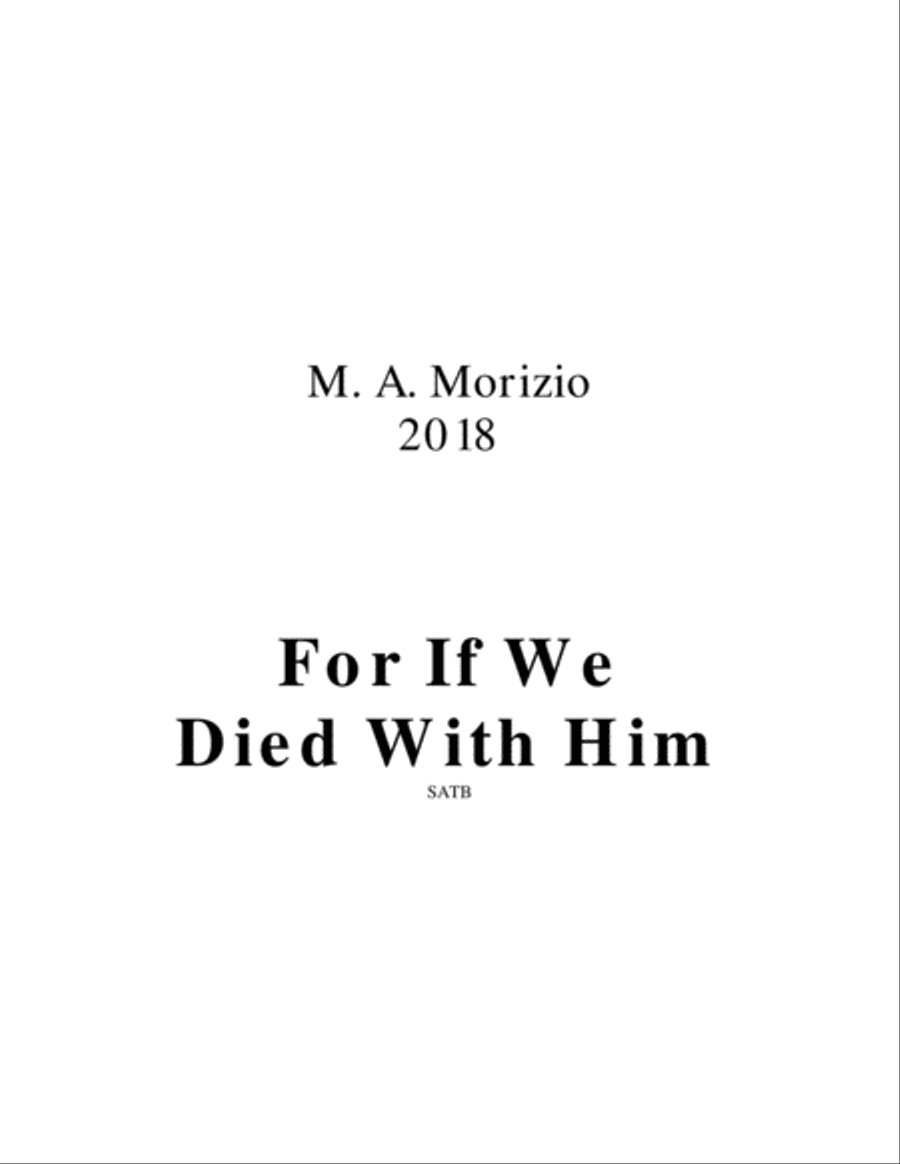Choral Choir (SATB) - Level 2 - Digital Download SKU: A0.926665 Composed by Michael A. Morizio. A Cappella,Christian,Sacred. Octavo. 13 pages. M.A. Morizio #3588435. Published by M.A. Morizio (A0.926665). In the first chapter of Paulâs second letter to Timothy, verses 1-10, we observe the intimate relationship that exists, between a spiritual father and his son⦠I remember you constantly in my prayers night and day. As I remember your tears, I long to see you, that I may be filled with joy. In Chapter two we also witness Paulâs commissioning Timothy to entrust to faithful men all that he was taught by the Apostle, that they then may be able to teach others in the same way also. While the elder Paul is now in prison and bound in chains, he is nonetheless empowered by the Holy Spirit to encourage and exhort Timothy to share in suffering as a good soldier of Christ, for the sake of the Gospel. Though Paul is bound in chains, he declares to Timothy the word of God is not bound! Endurance for Paul serves only one purpose, the salvation that is in Christ Jesus with eternal glory.In verse 11, Paul supports his statements by inserting another known 1st century Hymn to Christ, which brings us to our fifth anthem, For If We Died with Him. The text-or lyrics-of this hymn are even bracketed (or indented) in the NKJV Bible, suggesting the hymnic setting. The proposition of the text is quite clear; if we died with Christ, then we shall also live eternally with Christ. If we endure in the faith, then we shall also reign eternally with Christ. However, there is an insertion of 'Law' here, with a dire warning that the opposite is also true: If we deny Christ, resist, and refuse His beckoning and free invitation to salvation, then He will also deny us. Not everyone who says to me âLord, Lord,â will enter the kingdom of heaven⦠I will declare to them, âI never knew you; depart from me, you workers of lawlessness.â (Matthew 7:31-23). Thus, the stage has been set for the fifth anthem. The piece is composed for SATB a cappella. The key is F Major. The opening phrase, This is a trustworthy saying, is in ¾ time, where a series of triplets are sung three times each (the Trinitarian opening motif). The meter then shifts to 2/4 with a lovely, distinctive unison melody for the opening phrase, For if we died with Him, we shall also live with Him. Soon after, when the lyrics shift to the words, If we deny Him, He will also deny us, the song drops into the relative minor key (F minor). The melody in this passage is haunting, and sends a clear warning signal to the listener to pay heed to what is being sung. When the text then transitions from if we are faithless, He remains faithful, however, the key shifts back to F Major in a new (dance-like) rhythm for the final verse, He remains faithful, for He cannot deny Himself. A coda is inserted in the final phrase where the triplet pattern is recapitulated (This is a trustworthy saying) and the sopranos ascend to a high F singing the lyrics, we shall live, for He remains faithful! to triumphantly end the piece.
